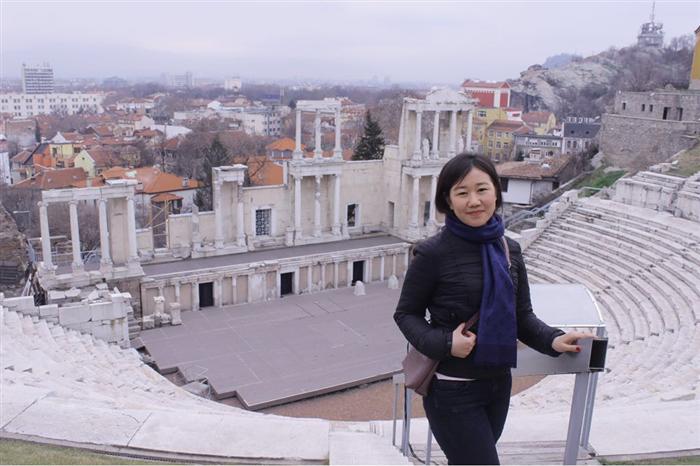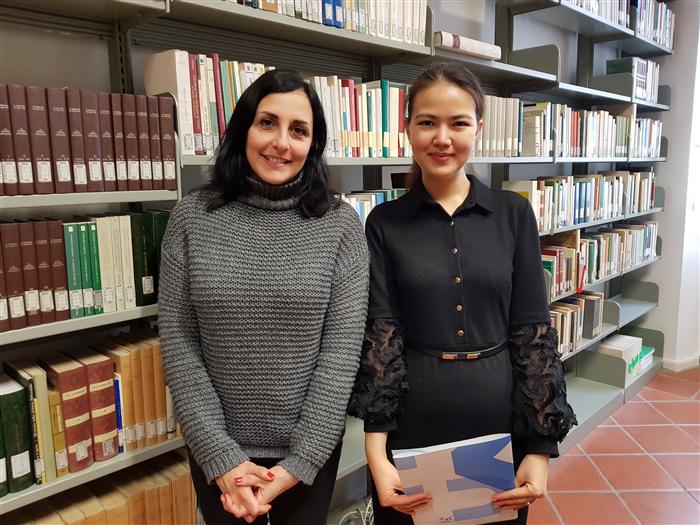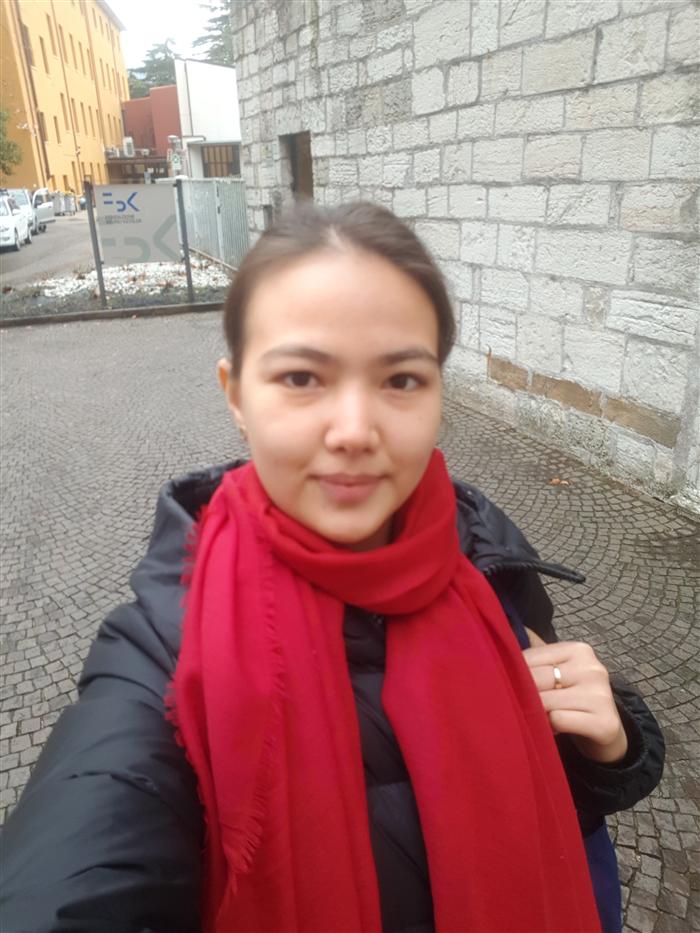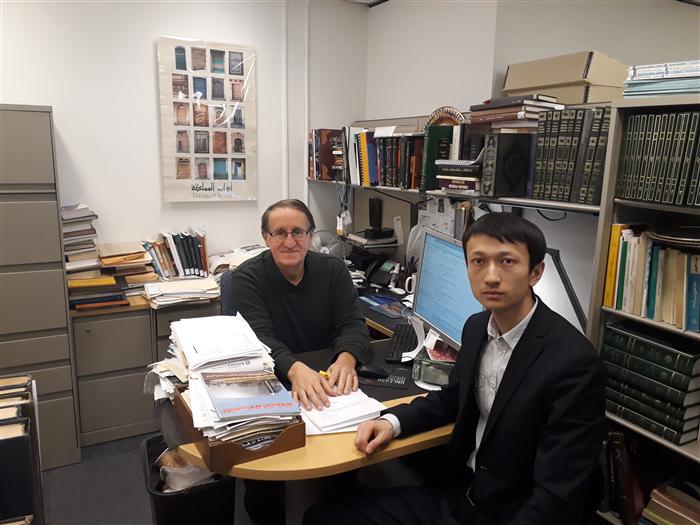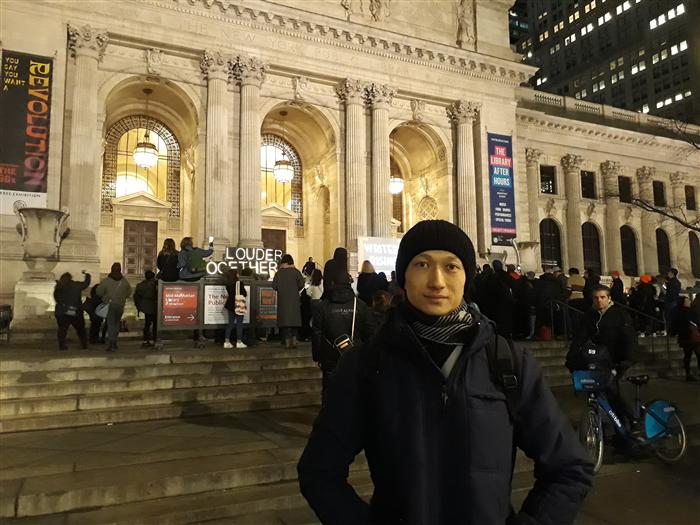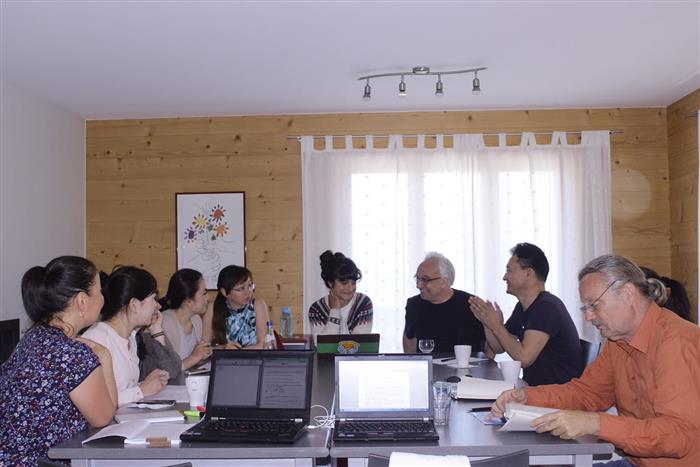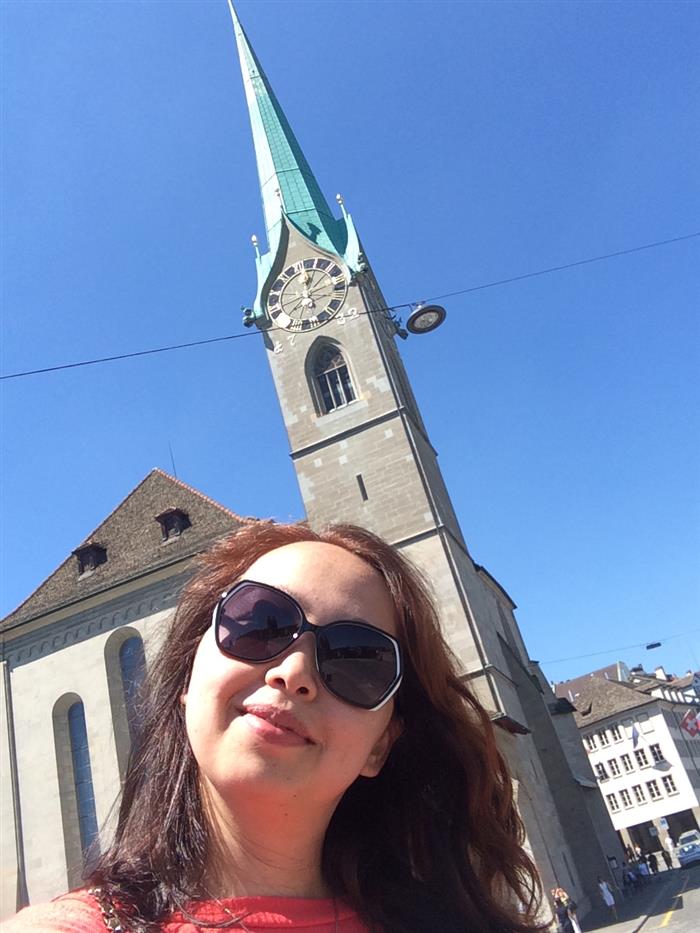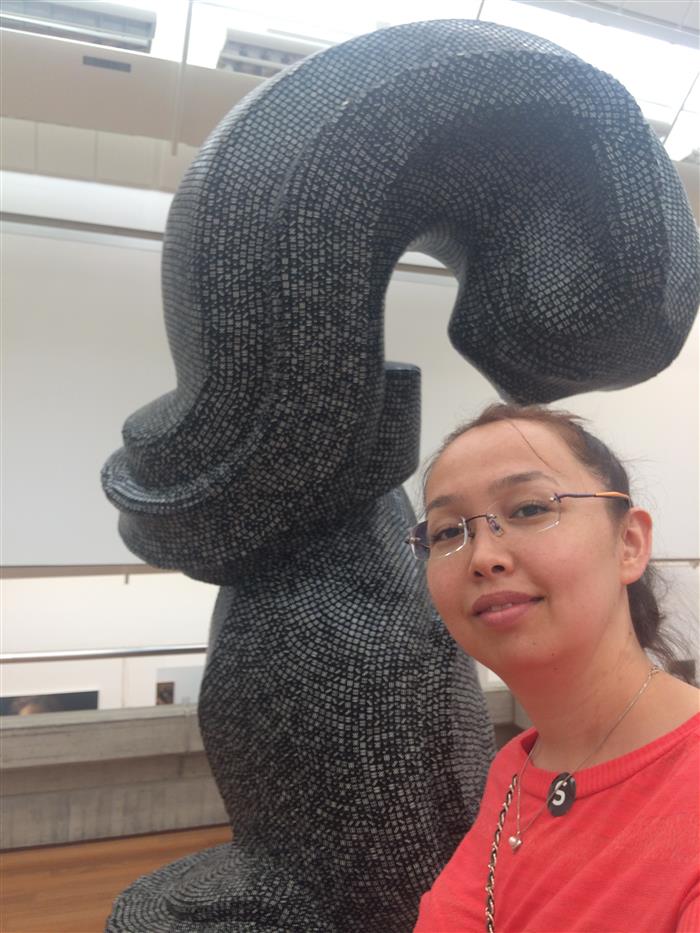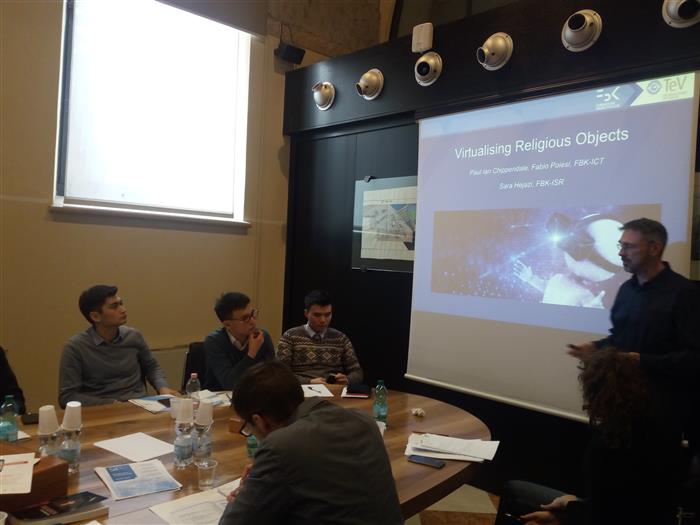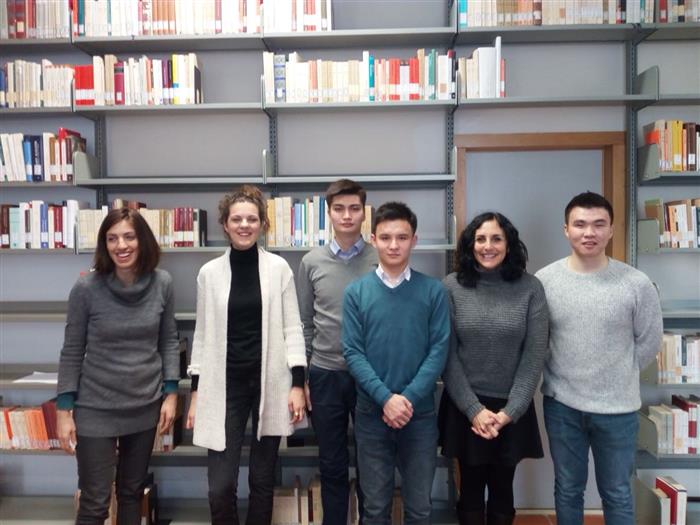Internship notes
In this section we share with you the impressions of BA, MA and PhD students about the experience in foreign universities - partners of al-Farabi KazNU
|
THE VALLEY OF KNOWLEDGE Bulgaria met us very friendly – smell of roses, welcoming faces, pleasant sunny weather… As Master students of al-Farabi Kazakh National University by specialties «Cultural studies» and «Religious studies» we became the first participants of joint Master program: «Europe and Asia: Cultural Diplomacy and Geopolitics of the EU» between Sofia University St. Kliment Ohridski and al-Farabi Kazakh National University. For us it was unique opportunity to take two diplomas of Bulgaria and Kazakhstan`s leading universities. During the study at Sofia University St. Kliment Ohridski we learnt next 8 subjects: Power in modern international communication; Borders of regions and cross-border cooperation; Diplomacy and anti-crisis control in the ЕU (historical and political aspects); Intercultural mediation and negotiation; Policy and culture in the EU; Geopolitics of the ЕU and Far East; Introduction to policy and institutes of the EU; Geopolitics of 21th century: Region of the Black Sea. We have acquired knowledge from the strongest professors of Sofia University St. Kliment Ohridski and learnt economic and political situations in the European Union, scrutinized aspects of Far East and The Black Sea. In addition, we improved our level of English language. Thanks to Professor Madlen Danova we reached level В2 and received the appropriate certificates. The extracurricular conferences and seminars helped us to broad our horizons. During one of those conferences where were discussed problems of the European Union and contribution of Bulgaria to their solution we met Antonio Tajani, who has served as President of the European Parliament since January 2017. It was significant meeting in our life. During «European perspectives on the West Balkan» conference, which was held on 14 November, experts discussed economic situation of Balkan countries and important role of Bulgaria in this way. On 11 January 2018, Bulgaria officially took up the European Union presidency. We caught this important event at the heart of country - in Sophia. We are very grateful to Sofia University St. Kliment Ohridski for its hospitality and unique techniques of researches, which we learnt during the educational process and to al-Farabi Kazakh National University for opportunity to get the European diploma supplement.
Amangeldikizi Tokzhan, 2 course Master student, "Cultural studies" |
|
|
MY UNIVERSITY, MY POSSIBILITIES
As of today al-Farabi Kazakh National University successfully cooperates with more than 300 largest universities of the world; the university is a member of International, European and Euroasian Associations of universities, the World Universities Consortium, etc. The international academic mobility became the important direction of higher education institution`s development in recent years. Annually over two thousand Bachelor, Master and PhD students of al-Farabi KazNU have internships in foreign high-ranking universities. The university`s teachers and administration staff constantly improve their skills by participation in scientific international conferences and business meetings. You can find our partners in CIS countries, Europe, North and South America, the Middle East and Asia. Al-Farabi Kazakh National University increases Kazakhstan`s positive image abroad by its activity. On 26 February 2018, al-Farabi Kazakh National University and Fondazione Bruno Kessler (Italy, Trento) signed the Agreement on Cooperation for the purpose of further perspective relations between two countries in educational and scientific fields, taking into account close international relations between the Republic of Kazakhstan and Italy. In the framework of internship program for Master students, I visited FBK in the city of Trento from 27 February until 9 March 2018. During Internship, I got set of skills for academic essay writing. It helped me to take participate in the 27th International Scientific Conference on Economic and Social Development in Rome, which was hold on 1-2 March 2018. In collaboration with the head of Department of Religious and Cultural studies (Faculty of Philosophy and Political science, al-Farabi Kazakh National University) professor Ainur Kurmanaliyeva we presented our paper: «The role and place of Islam in the structure of the modern Kazakhstan society». The most interesting thing of internship were the lectures of center’s professors. It changed my opinion in some aspects of my scientific research. I am grateful to my university for this great opportunity in receiving such valuable experience. In addition, I would like to thank my tutors in FBK, especially Sara Hejazi, Isabella Mase and Mark Ventura.
Israilova Assel, 1 course Master student, "Islamic studies"
|
|
|
MY UNIVERSITY – MY POSSIBILITIES! I had an internship from January 10 to 26 of this year at Columbia University of New York city (USA) in two directions: 1. Sustainable Development (MDP); 2. Islamic Studies. The teachers and professors of Columbia University greeted me very warmly and shared their experiences. During the internship, I had opportunity to use the scientific funds of Columbia University`s library and New York Public Library for collecting information by my dissertation: "The problem of cognition in the teachings of Maturidi." During my scientific internship, Professor Souleymane Bachir Diagne, who is a specialist in Islamic philosophy and Director of the Center for Sustainable Development at Columbia University Professor Lucia Rodriguez helped me for scientific research. In addition, I took participate in a round table organized by the Permanent Mission of Kazakhstan to the UN. I would like to thank my university and Department of religious and cultural studies for this great opportunity to broad my knowledge in Islamic studies.
Yesdaulet Yergeldi, 1st course Master student, "Islamic Studies" |
|
|
TRIP TO SWITZERLAND 10 June days passed as one during our trip to Switzerland, at the Summer school of the University of Zurich. Our flight took place on the route Almaty-Kiev-Zurich and was quite comfortable. At the airport we were met by a graduate of the KazNU named after al-Farabi, a doctoral student of the University of Zurich Dinara Abildinova, whose efforts made our trip was easy and relaxed. Previously, I visited this city as a tourist, but the current visit was radically different. May be I grew up, whether the specialization of culture made itself felt, but many things and events that have remained outside my field of vision, has attracted a lot of attention. First, it is a culture of nutrition. A huge number of outdoor cafes, coffee shops, restaurants and eateries are filled almost always, from morning to late evening. The food is quite expensive, but given that the average income of a resident of the banking capital of the world is from 5 thousand euros and above, it does not bother anyone. The menu is full of salads, breads and second courses. Soups – a great rarity, and they are mainly vegetable (dubaje, gazpacho, soup of mushrooms, onion soup, etc.). The explanation for this was found very soon: Europeans consider meat soups the food of the poor when the whole family ate a small piece of meat, vivaria it and eating bread to satiety. Nourishing broth - absolutely useless food in terms of vitamin and protein-carbohydrate content. European Breakfast is the main meal of the day. It is very diverse, tasty and healthy. By lunch, many are treated with slight disdain, that is, can easily eat a sandwich, Panini, croissant, salad. Few of the residents eat dinner at home, many people prefer cafes and restaurants. There are several reasons for this: the lack of communication is compensated; allows earnings; women have become emancipated so that they do not want to bother cooking 7 days a week. Here are the features in the diet of the Swiss. Second, a healthy lifestyle. For them, it is not just a slogan and the opportunity to cut the budget money for different sporting events, it's really a lifestyle! Many people prefer Hiking, given that the city is located on a hilly area, it is a great way to pump up the calf legs. In the early days, we were often mistaken, predicting the age of a passer-by from the back. In our understanding, those legs could only be young people up to 30 years. An-no, and 50, and 60-year-old man has a sports figure and a trained body. Surprised, or rather amused adults on scooters! For us, the scooter is a kids toy, they are a vehicle, totally eco-friendly and healthy. The number of bikes and say no. Third, order and purity. Garbage is thrown out only in ballot boxes at what each ballot box has several compartments: for glass containers, for food waste, for waste paper, for polyethylene and Tetra packages. You will rarely meet a spitting person. Even tourists who belong to the place of their stay, both temporary and foreign, try not to litter. And this is all the merit of the residents themselves, who treat the environment with care. The same care and respect pass through in relation to society: no aggression, no quarrels, no cursing drivers who are difficult to give way to another, no hysterical mothers, twitching their children. The reason is the peace that prevails in Switzerland for more than 5 centuries. Speaking of children: there are very few. Rarely meet Golden-haired, blue-eyed toddler, often come across immigrants from African and Arab countries. Apparently, he played the role of the desire of women to realize themselves, not sacrificing himself for the benefit of future generations. Fourth, absolute democracy in clothes. It is clear that office workers are dressed in classic suits. And all the rest dress up the way they want. No matter what the old lady slightly over 70. Wanted and went in t-shirt with shorts. That's where the expanse is for our "huts." For fashion especially no one is chasing, stereotypes no one suffers, the main principles are comfort and quality. Fifth, transport. In Zurich, many people travel by tram, other cities and countries are getting closer thanks to trains. The summer school took place in the town of Val-d Ilez, in the French part of Switzerland. We got three transfers, but bought only one ticket. Very convenient! For the post-Soviet citizen was the discovery of the absence of a conductor with a harsh face, past which will not pass any stowaway, or did not give the paw traveler. The controller met us only once and very friendly broke the mark in our tickets. But the social consciousness of Europeans does not allow them to ride a "Bunny". Sixth, the absolute equality of all Summer school participants. Professor Peter Finke and günther Sulle can safely go and make tea or coffee and then just to wash dishes. They will not come to mind to ask young undergraduates and doctoral students to serve them. The first days we tried to jump in and help "agashki", but gradually appreciated the advantages of this state of Affairs. The same respect reigns during seminars and master classes. No one flaunts his knowledge, position, title, not trying to push authority, approve, chto his opinion "the ultimate authority of truth." Seventh, the approach to scientific work. One day of school was devoted to theses of undergraduates from Kazakhstan. The objectives of the work, summary, research methods, main directions and, of course, an attempt to change the status quo in a positive way were voiced. At the end of the day we were asked a logical question: "do you have every scientific work must solve a problem?"All thought hard about it. In fact, no one asks us to solve anything, but apparently there are so many problems in our society that everyone wants to be useful...
Nazym Baskynbayeva, 2 course Master student, "Cultural studies"
|
|
|
MY INTERNSHIP IN ITALY
During the period from February 5 to February 15 of this year, under the internship program for undergraduates, I visited the Center for Religious Studies of the Bruno Kessler Foundation in Trento, Italy. The director of the Center for Religious Sciences of the Bruno Kessler Foundation, Professor Marco Ventura, and all the teachers of the center, especially wished to mention Sara Hejazi, Valeria Fabretti, Isabella Mace, Vittorio Guarnieri, were very welcome to us. The internship was very productive. During the internship I listened to the course of lectures of the above mentioned teachers, participated in conferences, conducted research with specialists from the center, collected information for a dissertation work in the library of the Bruno Kessler Foundation for Religious Studies, and also received consultations related to my thesis at the center's professors. During the internship I got acquainted with the work of the whole center: I learned about the advanced technologies of this center, got acquainted with specialists and their activities, and saw the process of work from within. Specialists from the center told about the activities of the center, the work of their offices, which are part of the overall mission of the research center: to study the relationship between religion and innovation, and also to explore the links between modern religion and science, technology, law, politics, culture. I am grateful to my university for the unique opportunity to receive such valuable experience, I also wanted to express my gratitude to the Center for Religious Studies of the Bruno Kessler Foundation.
Kaіyrzhan Dаuren 2 course Master student, "Religious studies" |
|









